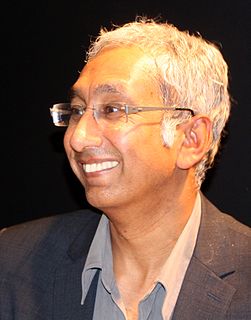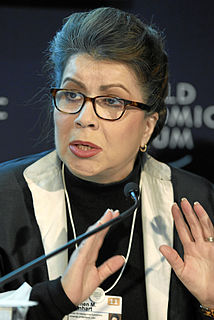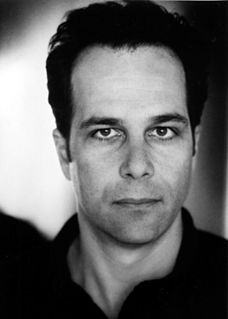Top 1048 Rooted Quotes & Sayings - Page 18
Explore popular Rooted quotes.
Last updated on December 11, 2024.
We live by faith; but Faith is not the slave Of text and legend. Reason's voice and God's, Nature's and Duty's, never are at odds. What asks our Father of His children, save Justice and mercy and humility, A reasonable service of good deeds, Pure living, tenderness to human needs, Reverence and trust, and prayer for light to see The Master's footprints in our daily ways? No knotted scourge nor sacrificial knife, But the calm beauty of an ordered life Whose very breathing is unworded praise! - A life that stands as all true lives have stood Firm-rooted in the faith that God is Good.
There can be no truly moral choice unless that choice is made in freedom; similarly, there can be no really firmly grounded and consistent defense of freedom unless that defense is rooted in moral principle. In concentrating on the ends of choice, the conservative, by neglecting the conditions of choice, loses that very morality of conduct with which he is so concerned. And the libertarian, by concentrating only on the means, or conditions, of choice and ignoring the ends, throws away an essential moral defense of his own position.
I know now that he who hopes to be universal in his art must plant in his own soil. Great art is like a tree, which grows in a particular place and has a trunk, leaves, blossoms, boughs, fruit, and roots of its own. The more native art is, the more it belongs to the entire world, because taste is rooted in nature. When art is true, it is one with nature. This is the secret of primitive art and also of the art of the mastersMichelangelo, Czanne, Seurat, and Renoir. The secret of my best work is that it is Mexican.
What differentiates time from space is that time does have a direction. In that sense it is different from space. I think that's certainly true that whereas spatial dimensions don't have direction or an arrow, time does. It runs from past to future. But I see that arrow of time as rooted in a deeper metaphysical reality, namely the reality of temporal becoming - of things coming to be and passing away. That is why time has this arrow. But it's not sufficient to simply say that time and space are distinct because time has a direction. The question will be: why does it have a direction?
Fear keeps us rooted in the past. Fear of the unknown, fear of abandonment, fear of rejection, fear of not having enough, fear of not being enough, fear of the future-all these fears and more keep us trapped, repeating the same old patterns and making the same choices over and over again. Fear prevents us from moving outside the comfort-or even the familiar discomfort-of what we know. It's nearly impossible to achieve our highest vision for our lives as long as we are being guided by our fears.
A real spirituality must be rooted in earthliness. Any spirituality that denies the earth, rejects the earth, becomes abstract, becomes airy-fairy. It has no more blood in it; it is no more alive. Yes, Jews are very earth-bound. And what is wrong in having money? One should not be possessive; one should be able to use it. And Jews know how to use it! One should not be miserly. Money has to be created and money has to be used. Money is a beautiful invention, a great blessing, if rightly used. It makes many things possible. Money is a magical phenomenon.
Whoever is planted in the Tao will not be rooted up. Whoever embraces the Tao will not slip away. Her name will be held in honor from generation to generation. Let the Tao be present in your life and you will become genuine. Let it be present in your family and your family will flourish. Let it be present in your country and your country will be an example to all countries in the world. Let it be present in the universe and the universe will sing. How do I know this is true? By looking inside myself.
One of the Christian fundamentalists' goals seems to be to rebuild the Temple, which means destroying the Al-Aqsa Mosque, which presumably means war with the Arab world - one of the goals, perhaps, in fulfilling the prophecy of Armageddon. So they strongly support Israeli power and expansionism, and help fund it and lobby for it; but they also support actions that are very harmful and objectionable to most of its population - as do Jewish fundamentalist groups, mostly rooted in the US, which, after all, is one of the most extreme religious fundamentalist societies in the world.
[T]he individual in whom the will for the light is strong and clear finds his heart inextricably bound up with the struggle of the forces of light in his native place and time. Much as he may long for the opportunity of fuller self- expression in a happier world, he knows that for him self-expression is impossible save in the world in which his mind is rooted. The individual in whom the will for the light is weak soon persuades himself that his opportunity lies elsewhere.
The thinking man must oppose all cruel customs no matter how deeply rooted in tradition or surrounded by a halo. We need a boundless ethics which will include the animals also. My life is full of meaning to me. The life around me must be full of significance to it. If I want others to respect my life, then I must respect the other life I see however strange it may be to mine. Ethics in our western world has hitherto been largely limited to the relation of man to man... but that is a limited ethics.
Through compassion it is possible to recognize that the craving for love that people feel resides also in our own hearts, that the cruelty the world knows all too well is also rooted in our own impulses. Through compassion we also sense our hope for forgiveness in our friends' eyes and our hatred in their bitter mouths. When they kill, we know that we could have done it; when they give life, we know that we can do the same. For a compassionate person nothing human is alien: no joy and no sorrow, no way of living and no way of dying.
When God gives you a door, if you want access, you go through that door. People didn't like Jesus. Oh, they had all kind of reasons to hate him but Jesus said, "I am the door. Any man who enters must come by me. If you don't come by me," he said, "you're a thief and a robber."
Well, if Omarosa Manigault is the door to Donald Trump, well I kind of like that door. That's a pretty door. That's an intelligent door. That's a spiritually rooted door.
We call our intuition our sixth sense, but in reality it would be called our first sense, because it's rooted in quantum nature of reality. It was around long before our solar system and our planetary system were even formulated or even organized. It is at the basis of how our normal sensing works. So instead of being our sixth sense or even â€" using the parapsychological term â€" "extrasensory perception," it's not. It's at the basis of our perception, and that's the quantum world.
I like to borrow a metaphor from the great poet and mystic Rumi who talks about living like a drawing compass. One leg of the compass is static. It is fixed and rooted in a certain spot. Meanwhile, the other leg draws a huge wide circle around the first one, constantly moving. Just like that, one part of my writing is based in Istanbul. It has strong local roots. Yet at the same time the other part travels the whole wide world, feeling connected to several cities, cultures, and peoples.
Well. Then we had the irises, rising beautiful and cool on their tall stalks, like blown glass, like pastel water momentarily frozen in a splash, light blue, light mauve, and the darker ones, velvet and purple, black cat's ears in the sun, indigo shadow, and the bleeding hearts, so female in shape it was a surprise they'd not long since been rooted out. There is something subversive about this garden of Serena's, a sense of buried things bursting upwards, wordlessly, into the light, as if to point, to say: Whatever is silenced will clamor to be heard, though silently.
I've spent my life living in rural America, some of it in blue state Vermont, some of it in red state upstate New York. They're quite alike in many ways. And quite wonderful. It's important that even in an urbanized and suburbanized country, we continue to take rural America seriously. And the thing that makes Vermont in particular so special, and I hope this book captures some of it, is the basic underlying civility of its political life. That's rooted in the town meeting. Each of the towns in Vermont governs itself.
Easter occurs on different dates each year because, like the Jewish Passover, it is based upon the vernal equinox, that dramatic moment when the hours of the day-light and the hours of darkness at last draw parallel and then the light finally and triumphantly wins out. Thus Easter is always fixed as the first Sunday after the first full moon following the spring equinox. It's a cosmic, solar, and lunar event as deeply rooted in religious traditions originating from sun-god worship as one could conceivably imagine.
I am not [...] asserting that humans are either genial or aggressive by inborn biological necessity. Obviously, both kindness and violence lie within the bounds of our nature because we perpetrate both, in spades. I only advance a structural claim that social stability rules nearly all the time and must be based on an overwhelmingly predominant (but tragically ignored) frequency of genial acts, and that geniality is therefore our usual and preferred response nearly all the time. [...] [T]he center of human nature is rooted in ten thousand ordinary acts of kindness that define our days.
Moral questions may not have objective answers-whether revealed by God or by science-but they do have rational ones, answers rooted in a rationality that emerges out of social need. That rationality can only be discovered through exercising the human potential for rational dialogue, the potential for thinking about the world, and for discussing, debating and persuading others. Values can never be entirely wrenched apart from facts; but neither can they be collapsed into facts. It is the existence of humans as moral agents that allows us to act as the bridge between facts and values.
My dressing room was right on the water, and I would climb out of my window and walk around on the roof, whenever I needed time to think, or whenever I couldn't get a scene together. My father even came out there on the roof with me. We just walked around and talked up there, just to get away from everything, and nobody could get to us there. I really do love that place very much. It holds a very deep-rooted place in my heart.
Two ideas are psychologically deep-rooted in man: self-protection and self-preservation. For self-protection man has created God, on whom he depends for his own protection, safety and security, just as a child depends on its parent. For self-preservation man has conceived the idea of an immortal Soul or Atman, which will live eternally. In his ignorance, weakness, fear, and desire, man needs these two things to console himself. Hence he clings to them deeply and fanatically.
The essence of the this-time-is-different syndrome is...rooted in the firmly held belief that financial crises are things that happen to other people in other countries at other times; crises do not happen to us, here and now. We are doing things better, we are smarter, we have learned from past mistakes. The old rules of valuation no longer apply. Unfortunately, a highly leveraged economy can unwittingly be sitting with its back at the edge of a financial cliff for many years before chance and circumstance provoke a crisis of confidence that pushes it off.
The cause of misery, death, and all personal and collective problems is rooted in the mind, the false, copy mind. The real, divine mind is transcendental, the witness, without thinking. Divine mind is without thoughts, all knowing, and eternally blissful. Trying to solve problems by thinking about them never produces a permanent solution because this false mind creates all problems; whereas, divine mind and our inner guidance bring forth solutions for our greatest good and the greatest good for all.
A man's minor actions and arrangements ought to be free, flexible, creative; the things that should be unchangeable are his principles, his ideals. But with us the reverse is true; our views change constantly; but our lunch does not change. Now, I should like men to have strong and rooted conceptions, but as for their lunch, let them have it sometimes in the garden, sometimes in bed, sometimes on the roof, sometimes in the top of a tree. Let them argue from the same first principles, but let them do it in a bed, or a boat, or a balloon.
In 1933-34, the Belgians conducted a census in order to issue ‘ethnic’ identity cards, which labelled every Rwandan as either Hutu (85%) of Tutsi (14%) or Twa (1%). The identity cards made it virtually impossible for Hutus to become Tutsis, and permitted the Belgians to perfect the administration of an apartheid system rooted in the myth of Tutsi superiority… Whatever Hutu and Tutsi identity may have stood for in the pre-colonial state no longer mattered; the Belgians had made ‘ethnicity’ the defining feature of Rwandan existence.
A man who is wrathful with us is a sick man; we must apply a plaster to his heart - love; we must treat him kindly, speak to him gently, lovingly. And if there is not deeply-rooted malice against us within him, but only a temporary fit of anger, you will see how his heart, or his malice, will melt away through your kindness and love - how good will conquer evil. A Christian must always be kind, gracious, and wise in order to conquer evil by good.
Detroit is a fascinating place, because things are so bad there that the dystopia has almost become utopian. People know they can't rely on the state, that public infrastructure is broken, and they've taken their own measures. People are growing their own food and selling their produce to local stores and restaurants. It's certainly not a fix-all; Detroit's problems are too deep-rooted for quick-fix solutions. But it's a hopeful sign. Detroiters are crafting their own solutions rather than being passive in the face of the city's and state's actions and inactions.
I am so tired of criticalness being called discernment. Do you want to know true discernment? Paul said "That your love may abound in all discernment." When you are willing to die for somebody that is when you are actually discerning them. Jesus could call the Pharisees hypocrites and snakes because he went to the cross and died for them. So the next time you are quote "discerning" about somebody ask yourselves the question could you die for them? If you can`t say yes, you're critical because the love of God is to lay down your life for them, and discernment is rooted only in love. Got it?



























